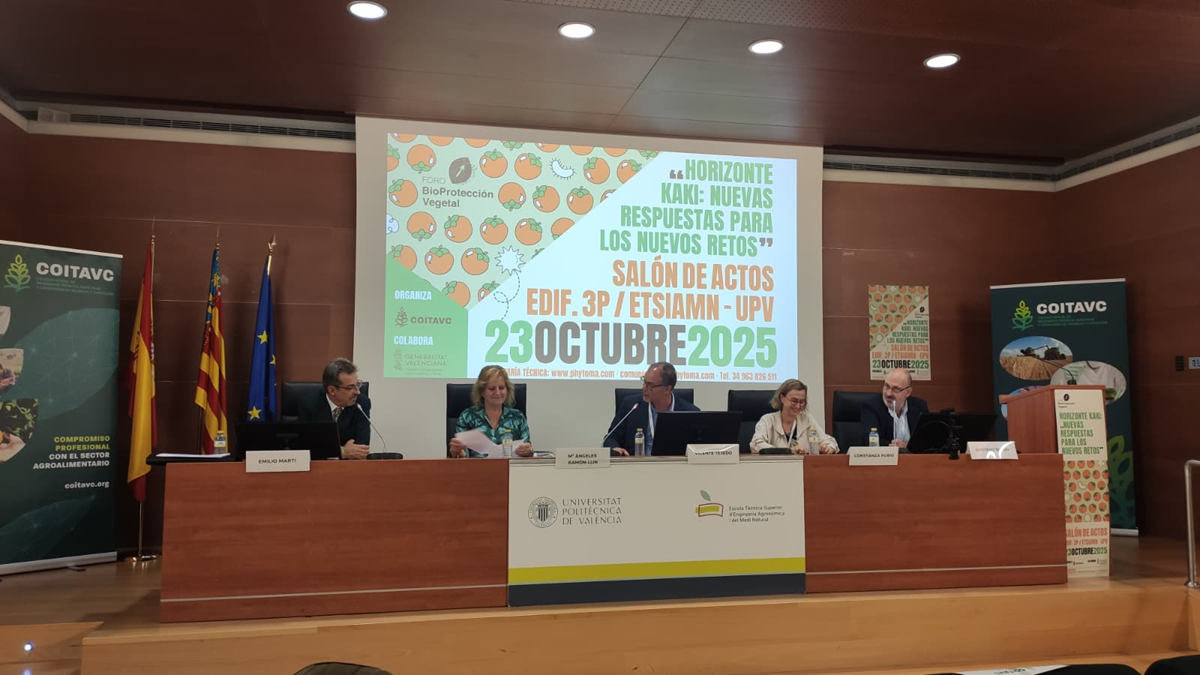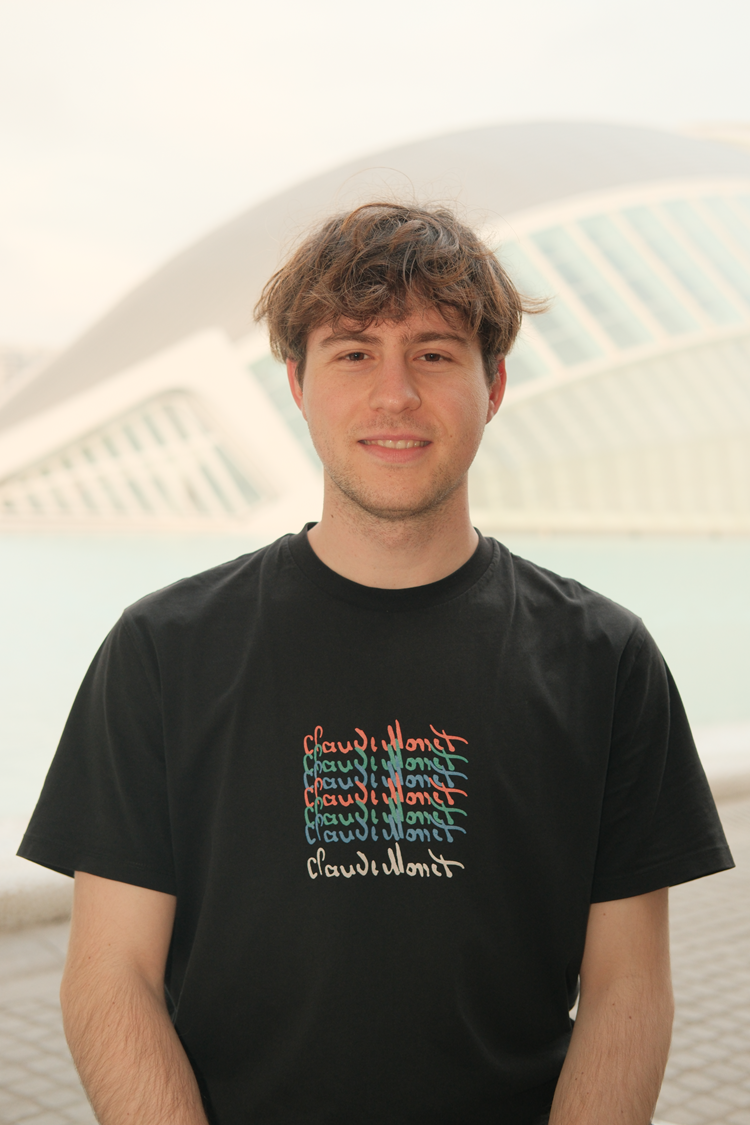Actualidad
Postharvest, key to the future of persimmon
The 5th Plant Bioprotection Forum focuses on innovation and sustainability in persimmon production

The Polytechnic University of Valencia (UPV) hosted on October 23 the 5th Plant Bioprotection Forum – Horizon Kaki: New answers for new challenges, organized by the Official College of Agricultural Technical Engineers and Graduates of Valencia and Castellón (COITAVC) and PHYTOMA, with the collaboration of the Valencian Regional Government.
The event brought together technicians, researchers, growers and institutional representatives to discuss the future of persimmon cultivation — a key sector for Valencian agriculture and an international benchmark in fresh fruit exports.
The opening ceremony was attended by Vicente Tejedo, Regional Secretary for Agriculture, Water, Livestock and Fisheries; M.ª Àngels Ramón-Llin, Director General for Agricultural and Livestock Production; Emilio Martín Montijano, President of COITAVC; and Constanza Rubio Michavila, Director of the Higher Technical School of Agricultural Engineering and the Natural Environment (ETSIAMN-UPV). The session was moderated by Gustavo Bueso, Editor-in-Chief of Phytoma-España. All participants agreed on the importance of innovation, sustainability, and close collaboration between research and producers to ensure the future of the crop.
Postharvest improvement, key to maintaining export leadership
From the very first presentations, speakers emphasized that improving postharvest management will be essential to maintaining Spain’s global leadership in persimmon exports and reaching new markets. Increasing quality requirements and the long shipping distances to destinations such as China make it necessary to strengthen research and innovation in storage, packaging, and transport.
Pascual Prats, President of the Spanish Persimmon Association (AEKAKI), stated:
“Spain is the world’s leading exporter, but we cannot reach China unless we improve postharvest; sixty days by ship make it impossible to maintain fruit quality with the current systems.”
Rafael Perucho, Manager of the Protected Designation of Origin (PDO) Kaki Ribera del Xúquer, recalled that Spain has become the world’s second-largest producer, only behind China, and the leading exporter. In his presentation, he showed how production has grown from less than 20 million kilos in 2000 to more than 350 million in the last decade.
Even so, he stressed that the reduction in cultivated area and pest pressure call for a coordinated strategy between growers, public administrations, and research bodies to guarantee the sustainability of the sector.
Perucho noted:
“The growth of Spanish persimmon has been extraordinary, but now the challenge is to maintain its commercial value through efficient and sustainable management.”
Agronomic innovation and new technological tools
The forum also addressed other factors shaping the future of persimmon, from pest management to technological innovation in crop practices. During the first round table, researchers from the Valencian Institute for Agricultural Research (IVIA) highlighted advances in nutrition, physiology, and smart agriculture.
José Blasco, from IVIA’s Agroengineering Centre, explained the potential of LIDAR sensors to estimate biomass and optimize fertilization with precision, while Andrés Marzal presented studies on the role of calcium in premature fruit abscission.
Throughout the day, it became clear that the sector is entering a transition stage in which sustainability, profitability, and postharvest quality must progress hand in hand. Contributions from experts representing IVIA, Agrobio, Kenogard, UPL, and BASF reinforced the relevance of biotechnological innovation, integrated pest management, and the development of new varieties adapted to climate change.
A forum to build the future of Valencian persimmon
The 5th Plant Bioprotection Forum concluded with a call for cooperation among all actors in the agri-food chain. Participants agreed that the future of Valencian persimmon will depend on the ability to integrate research, biological control, and postharvest technologies to ensure product quality from the field to international markets.










